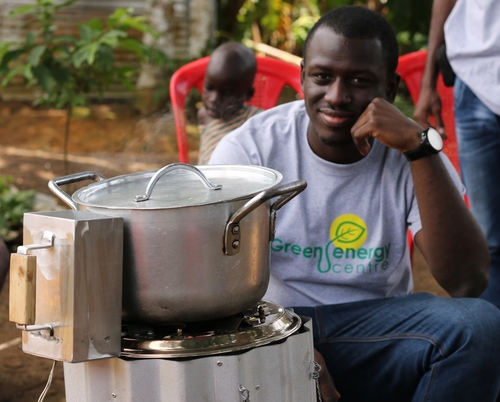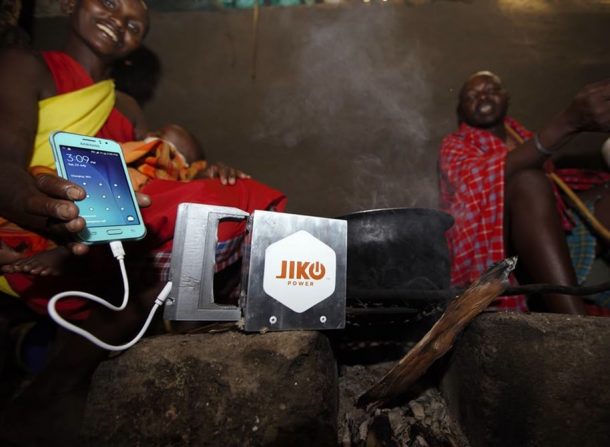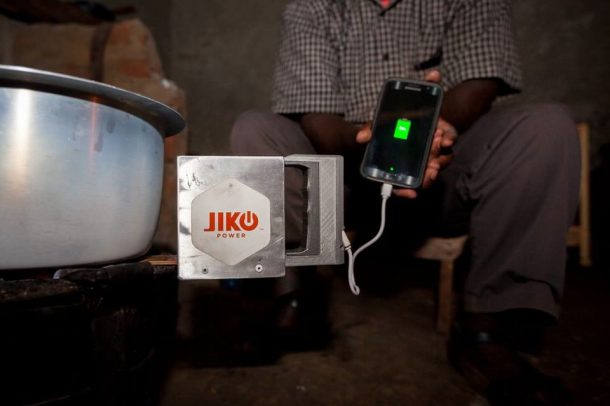JikoPower is one its kind sustainable energy startup that aims at placating energy woes in the developing countries using a very novel and ingenious technique. This University of Washington-based startup claims that they can create enough electricity using stove fire to charge mobile phones. Approximately 80 percent of Kenyans have mobile phones, but only 20 percent of them have electricity, and this product looks to change their world for the better.

People in Kenya have to walk for miles and miles in order to use paid charging stations. JikoPower, however, claims to placate this ordeal by bringing power to the people using its Spark thermoelectric generator.
A thermoelectric module works when there is a significant temperature difference between its two sides, and using that difference, it creates electricity. This aircraft-grade aluminium alloy device entails a thermoelectric flat module that generates electricity using a significant temperature difference between its two sides.

Spark uses a flange-like metal probe sticking out to one side. The probe’s one end is inserted between the flames of a cooking fire and the bottom of a cooking pot, while the other end is inserted into the reservoir of water located above the module. When the probe is heated, the heat travels beneath the thermoelectric module, warming its underside. The top end of the thermoelectric module, dipped in water, is relatively cooler, and this temperature difference (even if the water is boiling) generates an electrical current of 2 to 5 watts.
This voltage can directly be used by the people to plug in their phones or charging other devices into the Spark. According to JikoPower, some prototypes tested in Kenya and Uganda were able to charge a phone in less than two hours, which is a great achievement.
These devices have a potential to change the way of life for many far-flung areas. Kenyans for instance, can get rid of the pain of walking to the charging stations, and instead can even earn some cash by selling “charging time” in their community. Additionally, they can charge other appliances like fans, LED lights, etc. and this can improve their standard of life by quite a lot.

JikoPower VP Marene Wiley told on his website, “Our plan is to sell to people in developing countries, like Kenya, through existing distribution networks. We are interested in working with NGOs or grant organisations to run pilots, and subsidise/distribute the JikoPower Spark in areas where people make significantly less.”
The company states that the final market-ready version will be made very soon. Over the years, we have seen many such ideas come, such as RTI International’s complete thermoelectric cookstove for developing nations, and the camping-oriented BioLite stove. But if this is commercialised, it will certainly make the world a slightly better and more sustainable place to live.
You can find out more on their website.
Would you consider using this device to charge your small devices? Let us know in the comments’ section below!


